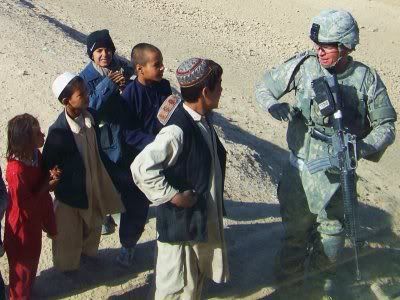
Ideally I'd have a full dozen experienced guys who could show soldiers what right looks like, but right now I've only got about half that, and the ones I've got have limitations.
Two of them have health problems that prevent them from wearing their armor, which also means they can't go on mission -- they're only fit for motorpool guards or computer jobs. Two have financial issues stemming from our home garrison barracks policy. The policy states that all unmarried E-5s, including those who have custody of any children for 180 days or less, be housed in the barracks.
Those two only have partial custody, which means they have to maintain two residences during the time they have their kids -- their barracks room and some other place. That can be expensive.
Financial problems aren't career killers, but they do limit the kind of advice these sergeants can give soldiers. If E-5s truly are the "backbone of the Army," and the "moral exemplars" for young soldiers, the future of Army mentoring looks rough.
I doubt Transportation ever had much appeal for the Army's "best and brightest." I understand why: the point-based promotion system means it takes a long time for guys to get promoted. They don't typically get to go to the "cool" schools (like Airborne), and the 88M occupation series probably has a comparably lower rate of degree-holders than the rest of the Army (another source of points). And it's not like they ever get practice time at the range (expert marksman gets you points) -- they've got jobs to do.
Unfortunately, most of my E-5s are over 35 and hoping to make it through to retirement, which is a scary thing for my E-4 specialists -- recent policy changes mean they have to at least make E-6 to stay in 20 years. They wonder how many years it'll take for them to get promoted, and I don't have an answer for them.
For now, though, I use my E-6 Staff Sergeants as mission commanders and my E-5s for detail leaders. It's not a long-term-oriented strategy, but by the end of the day the job gets done, and we literally are making it one day at a time.
Still, I think the future health of the Army requires that we pay attention to the needs of these low level NCOs. What the younger guys need is the kind of thing that can't be taught in a class or sergeant's time training -- it's something that can only be relayed by personal example, and that takes time and attention, a precious commodity no matter where we are.
That's the crux of Logistics: in garrison, we're tasked out all over the place and busy; during deployment, it's even worse.
The fact we're still able to make it work amazes me -- and I'm among those doing it....

No comments:
Post a Comment